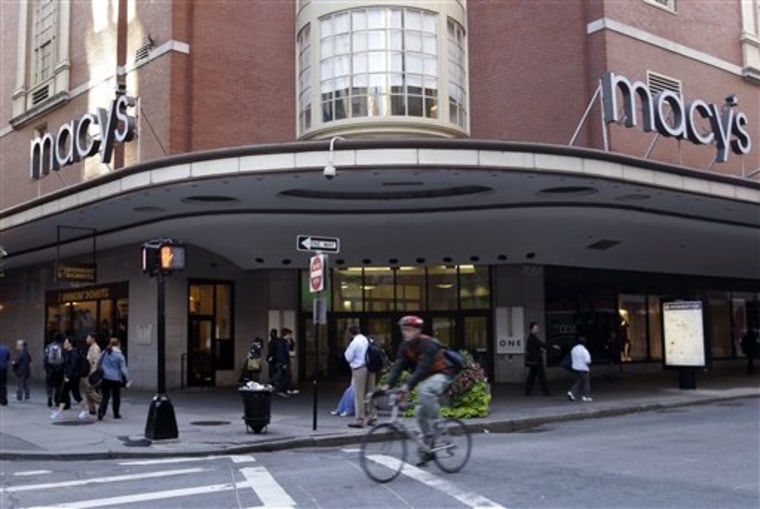Americans spent about the same amount in October as in August and September, according to figures released Thursday by a key data service, and they may be settling into new low-spending habits.
Including everything from toys to food, but not cars or gasoline, U.S. retail sales rose slightly in October — 1.5 percent — from a year earlier even as consumers grappled with rising unemployment and tight credit.
Compared with the month before, however, sales fell 2.3 percent in October, the biggest month-to-month decline since December 2008.
Thursday's figures from SpendingPulse, a service of MasterCard Advisors, are an estimate of spending in all forms including cash and offer fresh evidence that the holiday shopping season may be challenging for retailers.
Macy's Inc. said Wednesday that its sales have improved in recent months, and it reported a smaller third-quarter loss than a year earlier. But CFO Karen Hoguet said things remain very uncertain heading into a season that's crucial for most retailers.
A parade of earnings reports due Thursday and Friday from Wal-Mart Stores Inc., Nordstrom Inc., Kohl's Inc. and J.C. Penney Co. will offer a more textured read on consumers' recent spending.
Having cut their inventories and other costs, stores are expected to report solid profits. And the Commerce Department is expected to report Monday that total consumer spending rose slightly in October from September.
But New York retail consultant Walter Loeb pointed with pessimism to recent reports that consumer confidence is depressed and the unemployment rate climbed to 10.2 percent in October.
"The top line is not going to show any dynamic spending," Loeb said. "Shoppers readjusted their spending. They will spend a little for Christmas... But then they will cut back early next year."
With consumer spending — including such items as health care — accounting for 70 percent of U.S. economic activity, economists watch it closely. Any change in retail sales could indicate what kind of economic recovery the nation will face.
Many economists and retail analysts expect spending to remain low for a while. Federal Reserve officials warned Tuesday that unemployment probably will stay high for several years, even if signs of economic recovery take hold.
"Consumers have entered a period of stabilization," said Kamalesh Rao, director of Economic Research for MasterCard Advisors. "We are not seeing robust measures of acceleration."
SpendingPulse estimates that sales, excluding autos, rose 2.4 percent in August and 0.6 percent in September but stayed at September's level during October. That was significantly better than the average 5.8 percent loss SpendingPulse found the prior three months.
Economists surveyed by Thomson Reuters predicted the U.S. Department of Commerce's tally of October retail sales due Monday, which excludes autos and includes gasoline, will rise 0.4 percent from a year earlier.
Seasonally adjusted, the comparable SpendingPulse figure for actual spending fell 1.3 percent last month from October 2008, when it plunged amid the financial meltdown. The year-over-year change rises to 1.5 percent once gasoline is excluded. The figures exclude auto sales.
Total retail sales figures offer a broader picture of spending than the individual reports that major retailers released last week on their sales at stores open at least a year. They saw a combined 2.1 percent increase in October from a year earlier, according to a tally from the International Council of Shopping Centers-Goldman Sachs.
That was the second consecutive gain after more than a year of declines.
The data from ICSC-Goldman Sachs excludes autos, gasoline and building materials.
With Wal-Mart Stores Inc. no longer participating, the figures have become a better gauge of discretionary spending than of the economy overall.
